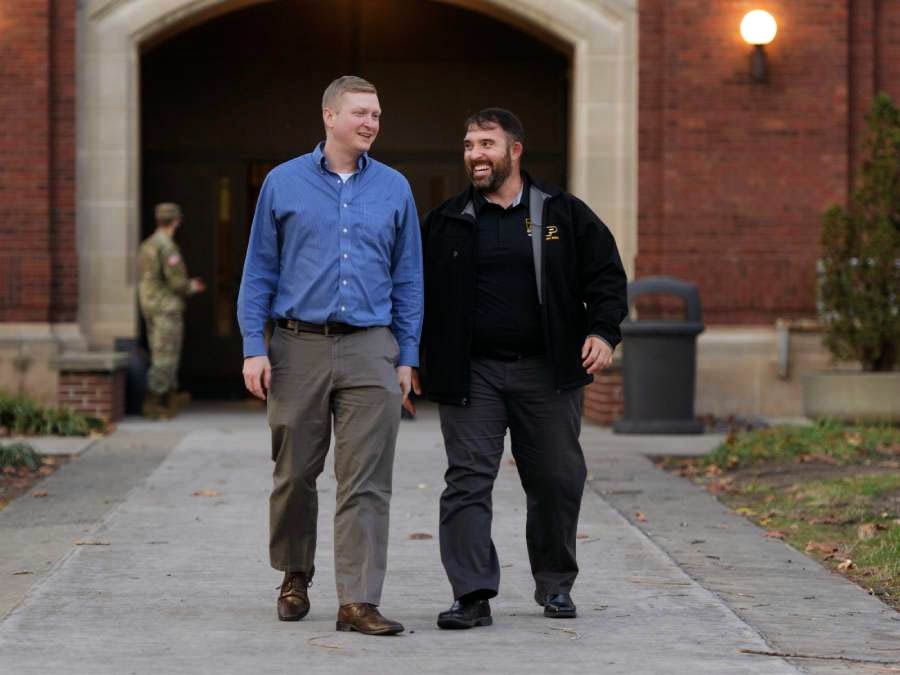Daniels School of Business military and veteran students have opportunities to connect with fellow students and alumni across learning platforms. Undergraduate and graduate students — both online and in-residence — can meet with fellow military students and alumni to assist one another in a number of areas.
As a Daniels School undergraduate or graduate student you can connect with fellow veteran and military students and alumni to discuss:
If you are a veteran or active military member who wants to learn more about enrolling at the Daniels School of Business and making military connections, contact us today.
If you’d like to meet or connect with a fellow military classmate, please contact Don Roush, Director of the Business Military Association.
